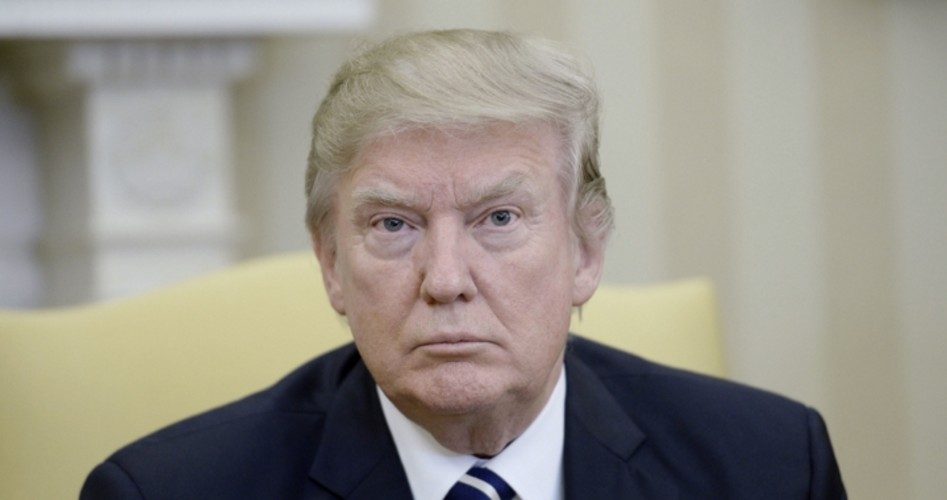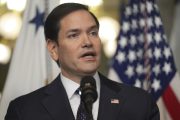
President Donald Trump will be signing legislation to overturn a rule that the previous administration put in place prohibiting states from blocking federal grant money to abortion providers, including Planned Parenthood. The announcement was made during Wednesday morning’s press conference and will affect some $300 million of federal money this year.
The president has already signed legislation repealing or neutering 11 such rules left over from the Obama administration, with two more pending and a couple more working their way through Congress. There’s a time clock running: the Congressional Review Act (CRA), which allows a 60-day “lookback” on the previous administration’s rules, runs out on April 28.
The leftist DailyKos celebrated the collapse of RyanCare but warned its progressive audience that these small victories using the CRA are mounting up:
The daily headlines of scandals [in the Trump administration] mask one area where Trump and the GOP Congress have been successful in advancing the Republican agenda: they have already succeeded in pursuing the most aggressive regulatory rollback since the Reagan administration….
Hundreds of public protections [put in place by the Obama administration] are at risk through the CRA: 15 have been repealed by the House, 12 are in the Senate, and already [as of March 31] 7 have been signed by Trump.
In February President Trump signed three CRA resolutions, reversing Obama’s Social Security gun ban on beneficiaries without due process of law, relieving coal miners of restrictions whose properties are near streams as well as relieving oil, gas and mining companies of the federal necessity of publishing payments they might make to foreign governments as a regular course of doing business.
The last week in March he signed four more, including one negating the “Fair Pay and Safe Workplaces” rule under which the government would collect information on an employer’s workplace law compliance record to determine if the employer should be awarded (or retain) the contract. Obama’s Executive Order also subjected contractors to paycheck transparency requirements and prohibited employers with contracts worth more than $1 million from arbitrating Title VII or sexual assault/harassment claims.
Another CRA rollback was the Bureau of Land Management “Planning 2.0” rule that would have governed all planning for the future uses of some 250 million acres of federal public land. Still another involved repeal of the so-called “Broadband Privacy Protections” rule which allegedly did little for consumer privacy but added significant additional federal burdens onto internet service providers.
During that Wednesday morning press conference Marc Short, President Trump’s Director of Legislative Affairs, spoke at length about the president’s aggressive use of the CRA to turn back a few of the many hundreds of burdens applied to businesses by the previous administration. Before taking questions Short said:
I think the President is keeping his promise to Americans to roll back that regulatory burden. And as a result, I believe that we are helping to spur growth in the American economy. We inherited — this administration did — the biggest regulatory burden, we believe, of any President in American history. And after an onslaught of new regulations that we believe were slow on the economy and hardworking Americans, this administration has gone to work at how to pull that back.
The previous administration authored more than 600 major regulations according to the Federal Register, with an estimated cost to the economy of about $740 billion. President Trump, on the campaign trail, promised several things on this front. He promised to freeze regulations and to “issue a temporary moratorium on new agency regulations.” And he did that. He promised that for every one new regulation, two old regulations must be eliminated. That promise has been kept. He promised to lift the restrictions on American energy, and he’s done that. He promised to ask each and every federal agency to prepare a list of all the regulations that they impose on the Americans, which are not necessary — and he’s done that. He promised to cut regulations massively, as he said, and he has.
Short noted that Trump has used Executive Orders as well as the provisions of the CRA to push back some of the burdens imposed by the Obama administration:
In addition, as you know, we’re using executive action to stop some of the costs of these regulations. He signed more than a dozen executive orders that, among other things, require us to review the cost of the Clean Power Plan, review EPA’s Waters to the U.S. regulation, clear regulatory burdens to small businesses, lift the moratorium on onshore coal leasing, begin a plan to reorganize or eliminate wasteful government agencies, and to give the HHS Secretary the discretion to provide states with the flexibility under Obamacare. These are all efforts to, again, in different areas, pull back on the regulatory front….
[The CRA] is a tool that we’re taking advantage of and that we’re actually passing this legislation, and that, working with House and Senate leadership, there are several more that we hope to sign before this window closes on April 28th.
The CRA is turning out to be a useful tool. It obliges the White House to work closely with, and gain approval of, both houses of Congress, before implementation, reducing the anxiety of some observers that Trump is merely using a different pen than was Obama but engaging in the same unilateral actions to impact the citizenry. It’s also a one-way street in that Trump is using it to repeal, neuter and otherwise remove burdensome legislation and not add to those burdens. Finally, it runs out in three weeks, leaving in place hundreds of similar burdens imposed by the Obama administration that are unfortunately beyond the reach of the CRA.
Photo of President Trump: AP Images
An Ivy League graduate and former investment advisor, Bob is a regular contributor to The New American magazine and blogs frequently at LightFromTheRight.com, primarily on economics and politics. He can be reached at [email protected].


